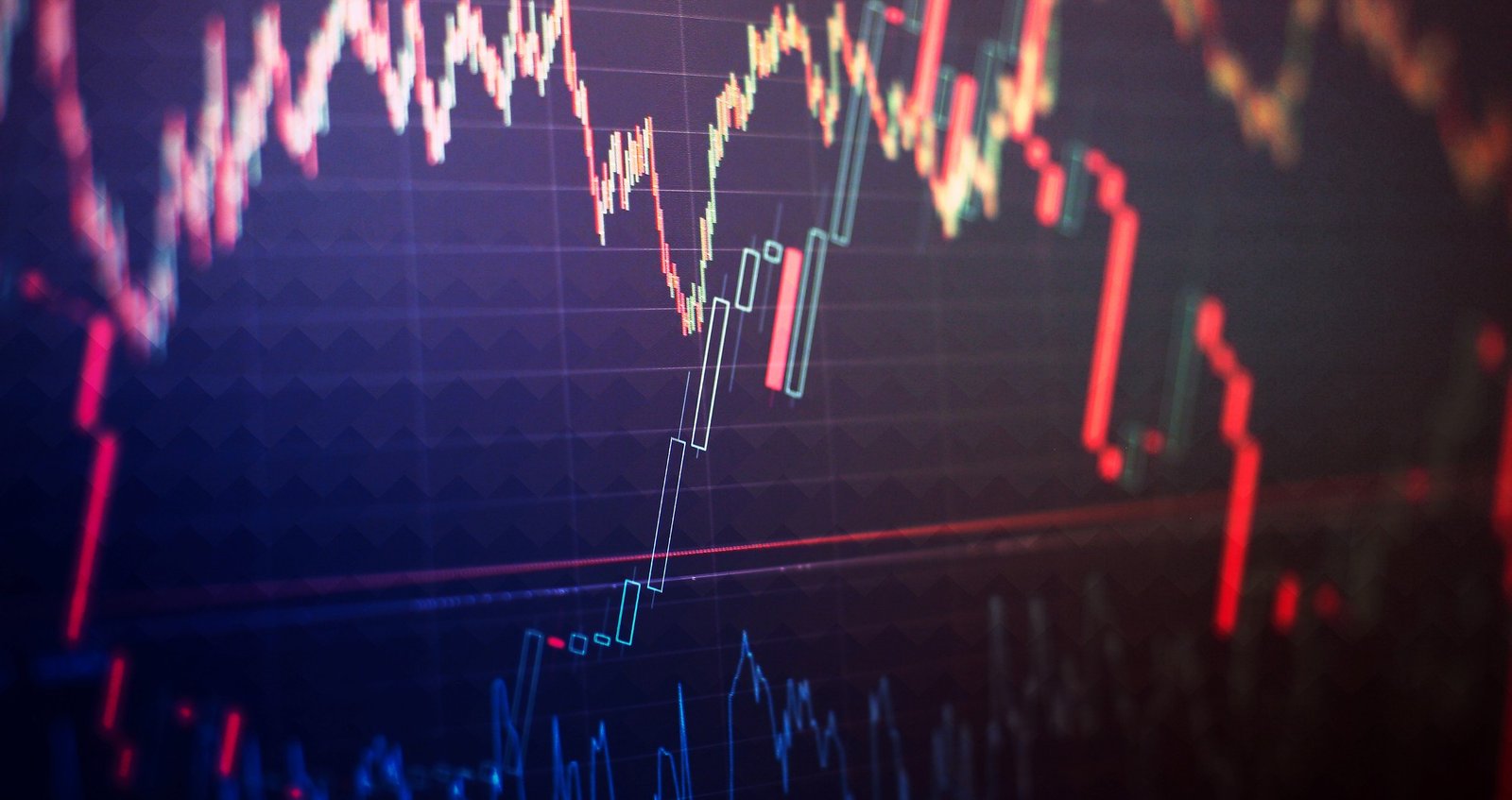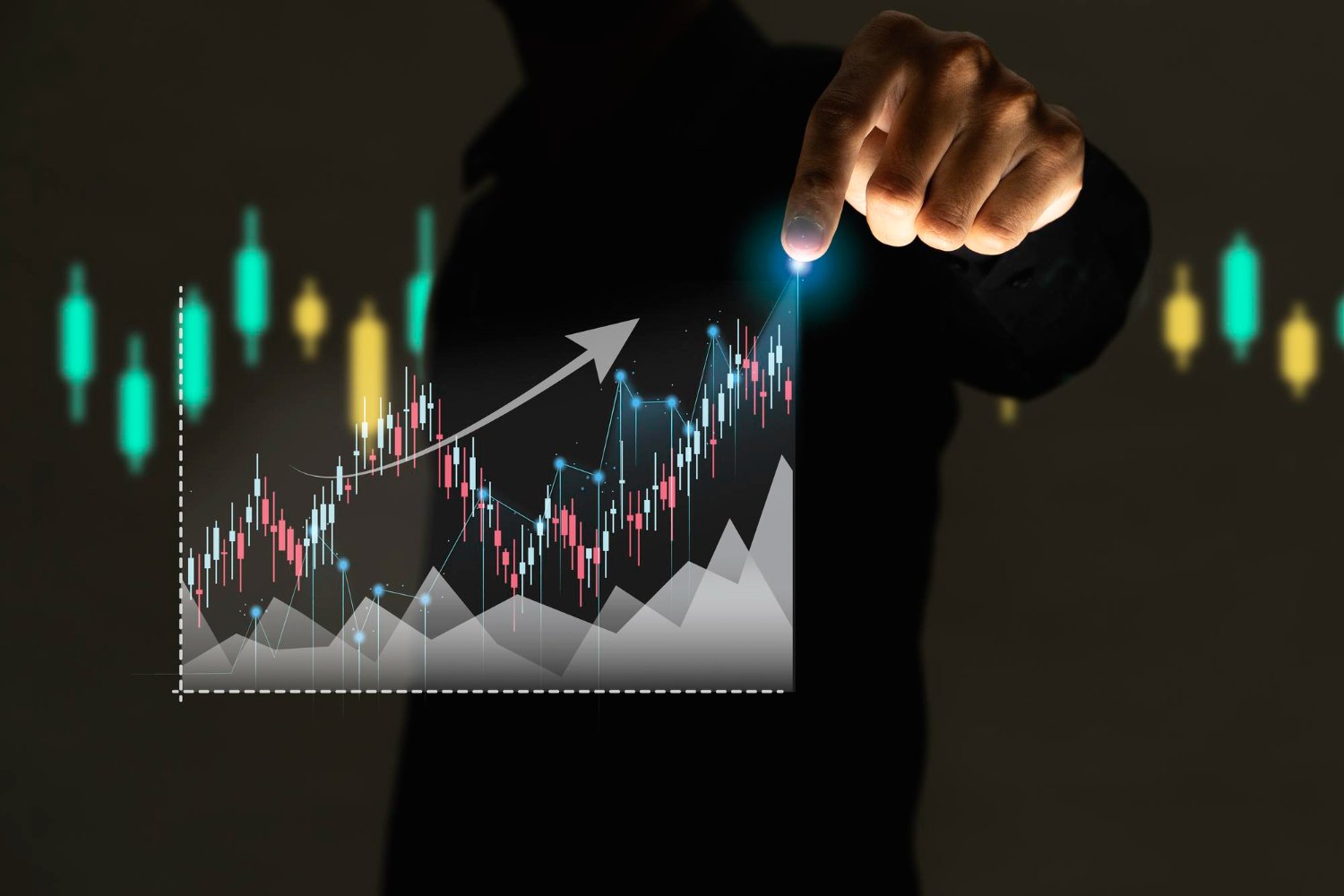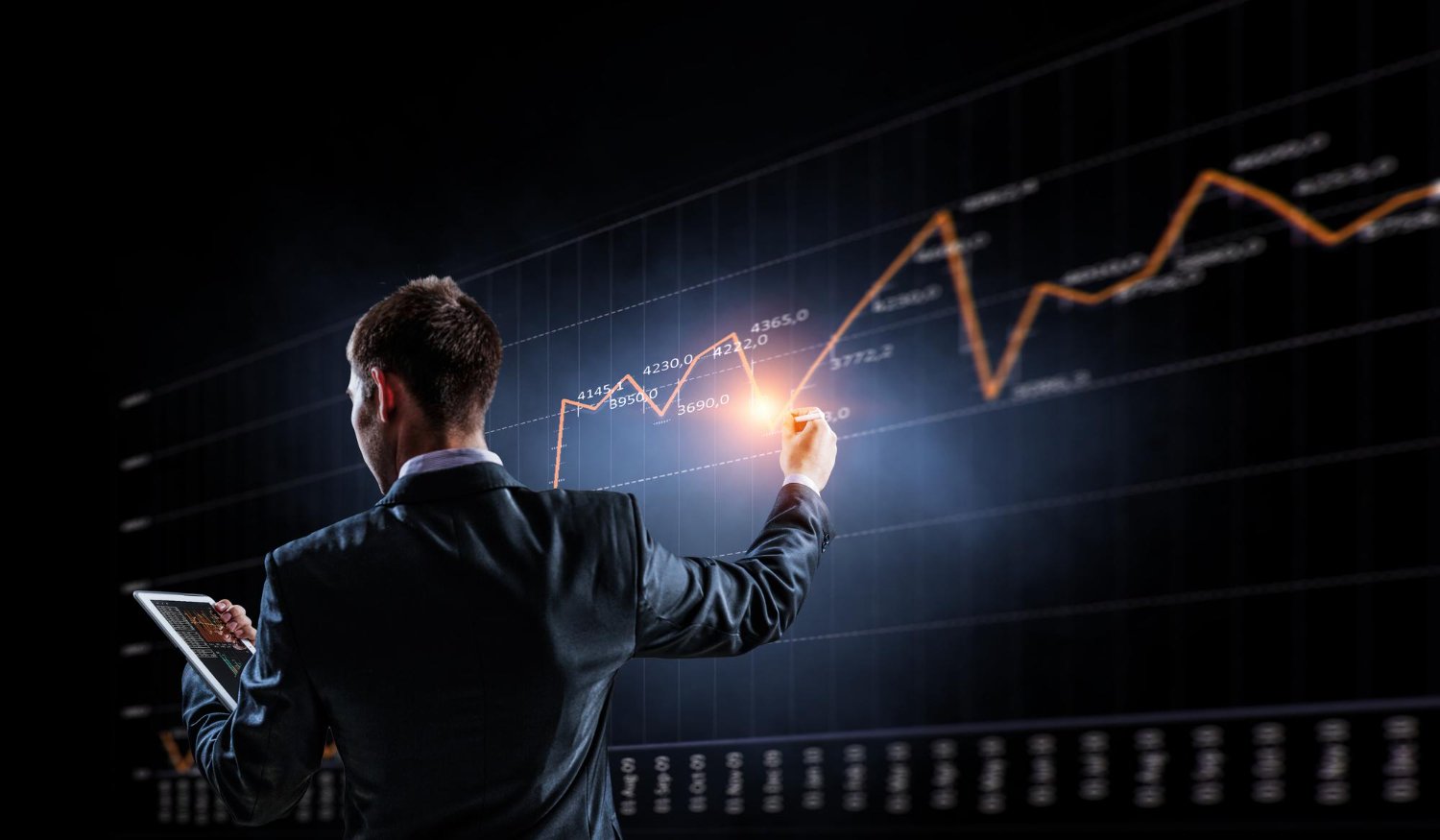Forex beginners are always eager to learn forex trading online as an opportunity to make money, and they always wonder how to get started. It’s important to have a deep understanding of how the market works and best practices for forex trading.
Do you know why it is hard for beginners to build a lucrative career as a forex trader?
The reason is that they enter the forex world solely for financial gain, oblivious to the fact that it offers so much more. While there are certainly some tales of fortune and prosperity, successful forex trading is a lot like running a business that requires careful planning, commitment, and a strong entrepreneurial spirit.
If you are new to the forex market, your mind may be spinning with all the conflicting information that you might find on popular forums and websites. However, if you come up with a solid blueprint before you dive in, there is every chance that you will get commendable results and engage in successful forex Trading. Below are the steps to take!
The Best Way to Learn Forex Trading for Beginners
Forex online trading presents an opportunity for greater profits, but you may be wondering how to get started. To successfully learn forex trading, it is important to understand how the markets work. Educating yourself is the key to managing your risks, trading profitably, and setting yourself up for success in your new investment. While forex trading is easy to learn, you’ll still have to practice and embrace your mistakes.
There are many ways to learn forex trading; they can either be free or paid. Before investing your money, it’ll be better to invest in knowledge and educate yourself. Forex trading is based on the ability to understand trends and spot opportunities in the markets. Therefore, the best way to learn forex trading is to believe in self-education and be patient with your progress.

In addition to this, and while the decision to learn forex can’t go wrong, there are still ways to trade forex without investment. Still, learning everything about forex will definitely help you understand the financial markets more. You can spend some time reading up on how forex trading works, active forex trading times, making forex trades, and risk management for beginners. Those small steps will help you learn forex bit by bit on the long run.
Steps to Educate Yourself About Forex
It can really pay off to educate yourself when starting to trade forex, as traders who fail tend to have no forex training or the wrong education. Only when you know the details of the market can you achieve any success. The following steps will provide you with a solid foundation on the mechanics of trading forex and help you get familiar with a forex trading platform.
Step 1: Learn the Forex Basics and Key terms
What are the forex basics? and how to learn it. To become an expert in the market, you must learn the basics. Forex trading has its own terminologies that every trader should be familiar with. To learn forex trading as a beginner is usually recommended to be as risk-free as possible. There are three approaches to doing so:
- Self-learning through online courses
- Copying successful traders
- Learning while trading and making mistakes
There are also a few forex trading terms every trader needs to know before they open a Forex account. Knowing what currency pairs are, what influences their value, how markets work, the best time to trade, and, most importantly, how to manage your risk are essential to your success! Those are obviously important when it comes to learn forex.
Step 2: Taking a Forex Trading Course
The reason why some newbie forex traders fail is that they attempt to run before they can walk. The fact that you are passionate about forex trading does not mean that you should start trading right away. Just like any other business endeavor, forex trading needs training too. It is a combination of theoretical education and practical training that makes a trader competent.
Forex is Not a Get Rich Quick Scheme
Make your path to learning forex easier by checking out the wide range of forex topics available through the TradingWonders forex course facilitated by a professional and get equipped with the knowledge you need to be successful in the global marketplace.
Advantages of Forex Course
You can find numerous courses online for free to learn forex trading. However, it is recommended that you learn forex trading from trusted sources, such as a trading company or a professional trader. Here are some benefits you get from the forex course.
1. The Value of the Right Education:
A person who earns the most in their chosen profession is usually the one who has gone above and beyond to get the best education. The same applies when you learn forex trading. While a lot of your skills will come from experience, it’s crucial to have the right technical insights before you begin trading, which the forex course will provide for you so that you know how to take the right first steps in forex trading.
2. Committing to Constant Growth
It’s important to remember that forex education isn’t just something you work on once and then never think about again. You need to be ready to adjust to the constantly changing marketplace. Since every trade that you make will be a new opportunity to learn, TradingWonders is dedicated to providing you with the best and most comprehensive forex education possible. Trading forex successfully requires professional education. Promotional resources will not prepare you for advanced trading skills.
Take advantage of TradingWonders’s professionally prepared courses and gain the knowledge that will ultimately benefit your trading success.
Step 3: Identify the Common Mistakes made by Forex Beginners
No matter which learning approach you choose, there will always be chances for mistakes to happen. Mistakes happen almost all the time; even traders with decades of experience tend to make mistakes as well. It’s common, so there is no need to worry about it. All you have to do is learn from your mistakes and avoid them later; this is crucial when it comes to learn forex over a long period of time, which is, of course, the best practice.

However, you can save yourself a lot of time and avoid possible losses by trying to avoid mistakes made by others. Here are some mistakes that are usually made by beginners:
- High Leverage: Leverage is an investment tool for using borrowed capital to maximize an investment’s potential return. It’s one of the major benefits of forex trading offered by brokers. However, beginner traders tend to use high leverage to maximize their profits which also magnifies losses as well. So, it’s better to start with lower leverage to contain any possible losses.
- Trading Uncommon Pairs: For beginners, it’s always advised to trade on major and common pairs. They are easier to follow, analyze and trade.
- No Research: Some newbies enter the market without doing their research, which usually leads to major losses. Research is gathering information. In a very dynamic market like the forex, dominated by rules of demand and supply, you have to know what affects the market.
- Trading without a Plan: Setting up a trading plan with defined goals is very essential. You can seek advice from professionals until you build a solid experience. It’s very important to strictly follow your plan and monitor your goals periodically.
Step 4: Know the Best Forex Currency Pairs to start with
Forex traders can access over 200 currencies, but not all are profitable. Analyzing currencies using your strategy helps determine the best pairs to trade. Start with major currency pairs as a beginner, as they are easier to predict. Trading unfamiliar pairs can lead to significant losses, but understanding major pairs leads to consistent profits.
Step 5: Significance of Technical & Fundamental Analysis
Forex traders analyze the market using two primary methods. One is technical analysis, and the other is fundamental analysis. Both forex Technical and fundamental analysis involves very different strategies and approaches to trading, providing distinct insights and value to support trading decisions, including when to enter or exit a trade. To properly learn forex, you need to be aware of both of them to an adequate level.
1. Technical Analysis – Helps predict future price movements
Technical analysis entails analyzing past market data, such as prices, volumes, and trends, and predicting future price movements based on this information. By analyzing data through technical analysis, analysts can better predict what will happen next in the market. A forex trader must be able to recognize price-based indicators, volume-based indicators, and moving averages in order to make an informed decision.
How to learn Forex Technical Analysis?
Several resources can be found online to teach you the basics of technical analysis while you learn forex trading. You can speed up the process by taking online courses and contacting professional traders. By doing so, you can avoid common mistakes made by newbies.
Understanding the key principles and applying them to a demo trading account is the best way to learn forex trading technical analysis. Another method to learn is to copy professional traders until you are confident enough to trade on your own. In copy trading, a trader copies the positions of a professional trader, either automatically or manually.
2. Fundamental Analysis – Helps identify trends affecting currency prices
Unlike technical analysis, which uses charts to identify patterns, fundamental analysis uses economic data and news articles to identify trends. Fundamental analysis involves analyzing economic, social, and political forces that might affect the price of a currency.
How to learn Forex Fundamental Analysis?
In order to understand fundamental analysis as you learn Forex trading, the first thing you need to do is eliminate the noise. Focus your study on these three essential areas.
- Economic Factors: It’s obvious how economic factors regularly influence the relative value of international currencies. To trade forex competently, you need to be aware of when official reports are released.
- Central Banks: Interest rate adjustments, debt purchases, and pegs can all have a dramatic effect on the value of foreign exchange. Keeping track of central banks’ activity is essential if you are going to trade currencies.
- Politics: Uncertainty in capital markets is due to trade policy, armed conflict, and leadership upheavals. Considering these issues is essential in fundamental forex analysis. The pillars of fundamental forex analysis are monetary policy, economics, and politics’ influence on investor confidence.
While some forex traders prefer to use one or another type of analysis depending on their trading style and objectives, the majority use a combination of the two.
Step 6: Understand the Forex Trading Costs
Getting started in forex trading necessitates familiarizing yourself with the forex trading costs. As you learn forex trading, the three most important trading costs you are likely to encounter are spreads, commissions, and swaps. Being unaware of the forex trading costs can greatly reduce your potential profit and negatively affect your portfolio performance.
Finding the right Forex broker is essential in order to execute successful trades and remain profitable with lesser forex trading costs. At TradingWonders, we work with the best liquidity providers that offer us the best pricing in the markets, making our spreads comparable with some of the best offered globally.
Step 7: Role of a Reliable Forex Trading Platform
Sometimes, even your winning strategy won’t work if you aren’t able to utilize a trading platform and place orders precisely or if you use a fraudulent trading platform. Getting to know your trading platform is crucial since it is the only way to avoid mistakes like order placement. MT4 platform makes this relatively simple to learn Forex trading compared to other platforms.
Choose a forex broker with direct platform access and personal area control. Avoid brokers without fund or trading history access, or lacking MT4 or MT5 licenses. Familiarize yourself with order buttons and practice on a demo account before trading real funds.
Can Forex beginners learn trading on their own?
Yes, forex beginners can learn trading on their own. While forex trading can be complex, there are many resources available online that can help beginners learn the basics of forex trading.
The following are some important differences to keep in mind when you learn forex trading:
| Self-Study | Formal Education |
| Many beginners start by educating themselves through books, online tutorials, articles, and videos. This approach allows for flexibility in terms of learning pace and subjects covered. | Some beginners opt for formal education through structured courses, webinars, or workshops offered by reputable institutions or trading academies. These programs often provide comprehensive training and may include mentorship or simulated trading experiences. |
| Technical Analysis | Fundamental Analysis |
| This approach involves studying price charts, patterns, and indicators to make trading decisions. It focuses on historical price data to predict future price movements. | This approach involves analyzing economic indicators, news events, and geopolitical factors that can impact currency values. It aims to understand the underlying economic fundamentals of a country to make trading decisions. |
| Demo Trading | Live Trading |
| Most brokers offer demo accounts that allow beginners to practice trading in a simulated environment without risking real money. This is a valuable way to learn and refine trading strategies before transitioning to live trading. | Once you have gained confidence and experience through demo trading, you can move on to live trading with real money. Live trading involves real market conditions and emotions, which can significantly impact your decision-making process. |
| Risk Management | Psychology |
| Learning about risk management is crucial for forex trading success. This involves understanding position sizing, setting stop-loss orders, and managing risk-reward ratios. Proper risk management helps protect your capital and minimize losses. | Forex trading can be emotionally challenging. It’s important to develop discipline, patience, and the ability to manage your emotions when faced with winning or losing trades. Many beginners underestimate the psychological aspect of trading, but it plays a significant role in long-term success. |
While the prospect of forex trading may initially appear appealing, the reality of forex trading differs greatly from the sales pitch you hear. Most beginners lose money as they learn the ropes of forex and find it challenging to make consistent profits.
Getting Started with Forex Trading
1. Find a Reliable Forex Broker
A forex broker acts as a middleman connecting retail traders to the forex market or interbank system. When selecting a broker, factors like regulation, currency pairs, customer support, and trading platform are crucial.
Consider the following critical points while looking for a forex broker:
- Security and legitimacy – Never give your financial information to an untrustworthy broker. Check if it is registered with a regulatory body to make sure the platform is legitimate to avoid forex scams, which are several scams that new traders regularly fall into after they learn forex and get into the trading scene.
- Transaction costs – Commissions and transaction costs will always be a part of the deal, so it makes sense to compare brokerage fees. Know that security is your top priority, and make sure you don’t sacrifice it for affordability.
- Easy deposits and withdrawals – The flexibility of the deposit and withdrawal from your account is a critical factor in choosing your forex broker. The forex broker should provide reliable options for both deposits and withdrawals.
- Ease of use – As a beginner, you might find forex trading a bit complex. Be sure to choose a broker with a simple trading platform like MT4.
- Customer service – If you experience a problem, you have to make sure that broker support is available. Before you use a platform, it’s imperative to review the customer support options available.
- Additional Services – Some forex brokerages may offer certain perks like forex bonuses, low spreads, high leverage, and negative balance protection. Choosing such brokers is a good way to make your trading journey rewarding.
Finding a trustworthy broker will greatly improve your trading experience.
2. Start with Demo Trades
Demo accounts are the most common forex account types to be found with most forex brokers. A demo account is what you need if you’re new to forex trading and want to explore the market without spending any money. So, after you learn forex and ensure that your level is adequate, start by owning your demo account!
Demo accounts mimic the real-world trading environment. Demo accounts allow users to practice real-world trading functions such as analyzing price movements, testing risk management strategies, understanding spreads, leveraging tools, and placing stop-loss and take-profit orders.
There is this misconception in the Forex market that demo accounts are only suitable for beginners. The truth is demo accounts can be very beneficial, even to experienced traders. Demo accounts have the advantage of being an excellent tool for exploring and experimenting with new forex brokers, platforms, and strategies. Upon gaining experience, you can then open up a Cent account and begin trading forex with real money and minimal complications.
3. Benefits of opening a Live Trading Account
While it is okay to start with a demo account at first to get to know the platform and learn the basics of trading, switching to a real account is by far the best. By doing this, you will learn forex trading and how to control how you perceive the market, resulting in more profitable trading. open forex account in a few easy steps and get started with forex trading.
Unlike trading with a demo account, live trading triggers a variety of emotions that will change your trading experience. When you start risking real money, you will experience emotions like fear and greed, which will make you a better trader as you learn how to control them.
4. Copy Trade is an excellent way to get started
Copy trade is a popular trading strategy that involves copying a professional trader’s positions either manually or automatically. If you’re here to learn forex trading and interested in taking your first steps in the winning reign, it’s a good idea to consider copy trade as an entry point.
Copy Trading comes with a package of benefits that include:
- The ability to follow successful forex traders.
- You don’t need to have any prior forex trading experience.
- Follow the expert traders’ strategy to become a better forex trader.
- Helps you avoid making common mistakes most newbies do.
- It is an excellent time-saving tool.
The Copy Trading technique also works best for traders who don’t have the time to stay current with the market or lack the experience to trade profitably on their own.
5. Trade with money you can afford
One of the primary pieces of advice you’ll get as you learn forex trading is never to risk money you can’t afford. Starting with $100 may not seem like a lot these days, but a $100 investment can help you learn forex trading techniques and even allow you to earn an additional source of income. When you develop and implement a successful trading plan, your first $100 Forex investment can ultimately transform your life for the better. Still, focus on your path to learn forex firstly, as this is the most important step.
Forex trading can be risky, and that’s why you should calculate your risk and how much you can afford to lose. Having a good risk management plan can be very helpful in this regard. Forex traders, especially those who learn forex continuously, can start trading with $100! This amount of money is very small when talking trading and investing-wise. Still, it’s enough to start engaging with the trading world.
6. Choose a Strategy to follow
Forex Trading is suitable for both long-term and short-term investment strategy goals. While short-term trading is based on highly fluctuating price movements and aims to make quick money, long-term trading is centered around fundamental aspects, aiming to make steady profits over time. Understanding the market and making decisions based on your financial objectives will ensure maximum profits and minimum risks.
Almost every trading forex tutorial gives traders a different trading strategy. However, it’s best to decide first what type of trader you are and what are your trading goals. This will give you an overview to choose a trading strategy accordingly. There are several forex Strategies to choose from, and many of them are very good to go with for those who learn forex or who’re still beginners!
Learn Forex Trading: FAQ
What should I learn first in forex trading?
Investing in self-education and being patient are the first steps to learn forex trading. As a beginner, learn basic concepts, market analysis, risk management, trading strategies, practice demo trading, manage money, and remain emotionally stable.
What are the basic concepts of forex trading?
Some fundamental concepts in forex trading include understanding currency pairs, exchange rates, bid/ask prices, pips, lots, leverage, and margin. It’s crucial to grasp these concepts to make informed trading decisions.
How can I learn forex trading for free?
To learn forex trading for free, research online for educational materials, read books, follow trusted websites and online communities, utilize demo accounts, watch educational videos, learn about fundamental and technical analysis, and practice risk management.
What are the best resources to learn forex trading?
You can learn forex trading through online courses, reading books, participating in forums and communities, attending webinars, working with demo accounts, visiting forex websites and blogs, and following forex-related YouTube channels.
What is the most important thing to learn in forex?
Understanding margin and leverage is essential for forex traders. Without these tools, forex traders would not be able to control trading positions that were considerably larger.
Can I teach myself forex?
Yes, it is possible to learn Forex trading through self-study and practice. Learn the basics by using online resources, books, and demo accounts. Develop a trading plan based on market trends and financial news. Engage with trading communities and keep a trading journal.
What is the best online course to learn forex trading?
AximTrade offers a comprehensive online forex course taught by professional traders that will help anyone become familiar with the forex market. Successful traders have contributed their experience and knowledge to the development of this course. There are three levels of the course, ranging from basic to advanced.
Is it hard to learn forex trading?
Trading forex can be challenging, but if you have the right tools and resources, you can succeed. Taking courses covering introductory topics and building on them with more advanced lessons is the most effective way to learn forex trading. The content should be interactive, easy to understand, and followed by a quiz so newbies can check their learning.





